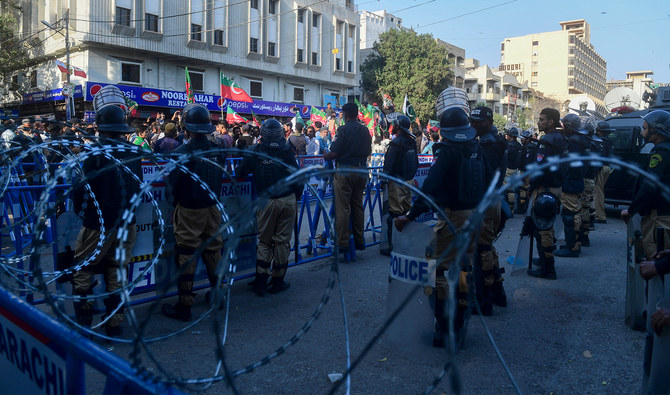ISLAMABAD: Pakistan witnessed a significant decline in its ranking on a major democracy index released this week which classified it as an “authoritarian regime” after factoring in a range of developments last year as the country prepared for the February 8 general elections.
According to the Economist Intelligence Unit’s latest index, there was a general deterioration in the quality of democracy across the world in 2023, with only eight percent of the global population living in “full democracy.”
However, Pakistan, which was previously viewed as a “hybrid regime” fell down by 11 places in the global ranking and entered a wholly new category.
“Pakistan registered the greatest deterioration of any country in the region — its score fell by 0.88 to 3.25, resulting in a fall of 11 places in the global ranking table, to 118th,” said the Economist’s Democracy Index 2023. “Alongside meddling in the electoral process and government dysfunction, the independence of the judiciary has been severely curtailed.”
“Pakistan is the only Asian country to be downgraded, having been reclassified from a ‘hybrid regime’ to an ‘authoritarian regime,’” it added.
The index maintained that the military was an important power broker in Pakistan, adding that it used its influence to undermine former prime minister Imran Khan’s Pakistan Tehreek-e-Insaf (PTI) party.
It also recalled that Khan had been indicted on corruption charges and incarcerated in August.
“This impaired his ability to rally his party or be an effective leader despite his popularity, especially among urban Pakistanis,” it added. “The military suppressed protests over Mr.Khan’s incarceration and sought to try civilians under martial law for supporting the PTI leader. As a result of official harassment and intimidation of senior PTI members, many defected to the ruling party.”
The Economist also maintained that Pakistani elections would not lead to “more democracy” since the opposition forces in the country were subject to “state repression.”
















